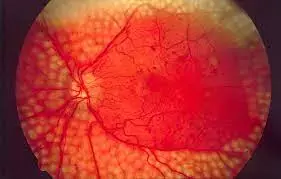- Home
- Medical news & Guidelines
- Anesthesiology
- Cardiology and CTVS
- Critical Care
- Dentistry
- Dermatology
- Diabetes and Endocrinology
- ENT
- Gastroenterology
- Medicine
- Nephrology
- Neurology
- Obstretics-Gynaecology
- Oncology
- Ophthalmology
- Orthopaedics
- Pediatrics-Neonatology
- Psychiatry
- Pulmonology
- Radiology
- Surgery
- Urology
- Laboratory Medicine
- Diet
- Nursing
- Paramedical
- Physiotherapy
- Health news
- Fact Check
- Bone Health Fact Check
- Brain Health Fact Check
- Cancer Related Fact Check
- Child Care Fact Check
- Dental and oral health fact check
- Diabetes and metabolic health fact check
- Diet and Nutrition Fact Check
- Eye and ENT Care Fact Check
- Fitness fact check
- Gut health fact check
- Heart health fact check
- Kidney health fact check
- Medical education fact check
- Men's health fact check
- Respiratory fact check
- Skin and hair care fact check
- Vaccine and Immunization fact check
- Women's health fact check
- AYUSH
- State News
- Andaman and Nicobar Islands
- Andhra Pradesh
- Arunachal Pradesh
- Assam
- Bihar
- Chandigarh
- Chattisgarh
- Dadra and Nagar Haveli
- Daman and Diu
- Delhi
- Goa
- Gujarat
- Haryana
- Himachal Pradesh
- Jammu & Kashmir
- Jharkhand
- Karnataka
- Kerala
- Ladakh
- Lakshadweep
- Madhya Pradesh
- Maharashtra
- Manipur
- Meghalaya
- Mizoram
- Nagaland
- Odisha
- Puducherry
- Punjab
- Rajasthan
- Sikkim
- Tamil Nadu
- Telangana
- Tripura
- Uttar Pradesh
- Uttrakhand
- West Bengal
- Medical Education
- Industry
Aspirin or dipyridamole use reduces risk of retinopathy in diabetics: study

Patients with type 2 diabetes benefit from aspirin or dipyridamole therapy in terms of a reduced risk of developing non-proliferative diabetic retinopathy (NPDR), according to a recent study published in the BMC Ophthalmology.
Researchers investigated whether antiplatelet/anticoagulant (APAC) therapy can protect patients with type 2 diabetes mellitus (T2DM) from the development or progression of diabetic retinopathy (DR). This is a retrospective cohort study using Longitudinal Health Insurance Database in Taiwan. A total of 73,964 type 2 diabetic patients older than 20 years old were included. Hazard ration (HR) of non-proliferative DR (NPDR), proliferative DR (PDR), and diabetic macular oedema (DME) were analyzed with APAC usage as a time-dependent covariate. Age, sex, comorbidities, and medicines were further adjusted in a multi-variable model. Contributions of respective antiplatelet/anticoagulant (APAC) were investigated with sensitivity analysis.
The results of the study are:
- Compared with nonusers, antiplatelet/anticoagulant (APAC) users had a lower cumulative incidence of NPDR (P < 0.001), overall incidence of non-proliferative DR (NPDR) (10.7 per 1000 person-years), and risk of developing NPDR (adjusted HR = 0.78, 95% CI = 0.73–0.83).
- However, no significant differences were observed between antiplatelet/anticoagulant (APAC) users and nonusers in the risks of PDR or DME. Hypertension, diabetic nephropathy and diabetic neuropathy were risk factors for NDPR development, while heart disease, cardiovascular disease, peripheral arterial occlusive disease, and statin usage were covariates decreasing non-proliferative DR (NPDR) development.
- Aspirin and Dipyridamole showed significant protection against non-proliferative DR (NPDR) development.
- Clopidogrel, Ticlopidine, and warfarin showed enhanced protection in combination with aspirin usage.
Thus, antiplatelet/anticoagulant (APAC) medications have a protective effect against NPDR development. Diabetic patients benefit from single-use of aspirin or dipyridamole for the prevention of non-proliferative DR (NPDR).
Reference:
Effect of anticoagulant/antiplatelet therapy on the development and progression of diabetic retinopathy by Chi-Juei Jeng, et al. published in the BMC Ophthalmology.
https://doi.org/10.1186/s12886-022-02323-z
Keywords:
The effect, anticoagulant, antiplatelet therapy, development, progression, diabetic retinopathy, type 2 diabetes, Chi-Juei Jeng, BMC Ophthalmology, non-proliferative diabetic retinopathy, aspirin, dipyridamole therapy, Chi-Juei Jeng, Yi-Ting Hsieh, Cheng-Li Lin & I-Jong Wang
Dr. Shravani Dali has completed her BDS from Pravara institute of medical sciences, loni. Following which she extensively worked in the healthcare sector for 2+ years. She has been actively involved in writing blogs in field of health and wellness. Currently she is pursuing her Masters of public health-health administration from Tata institute of social sciences. She can be contacted at editorial@medicaldialogues.in.
Dr Kamal Kant Kohli-MBBS, DTCD- a chest specialist with more than 30 years of practice and a flair for writing clinical articles, Dr Kamal Kant Kohli joined Medical Dialogues as a Chief Editor of Medical News. Besides writing articles, as an editor, he proofreads and verifies all the medical content published on Medical Dialogues including those coming from journals, studies,medical conferences,guidelines etc. Email: drkohli@medicaldialogues.in. Contact no. 011-43720751


